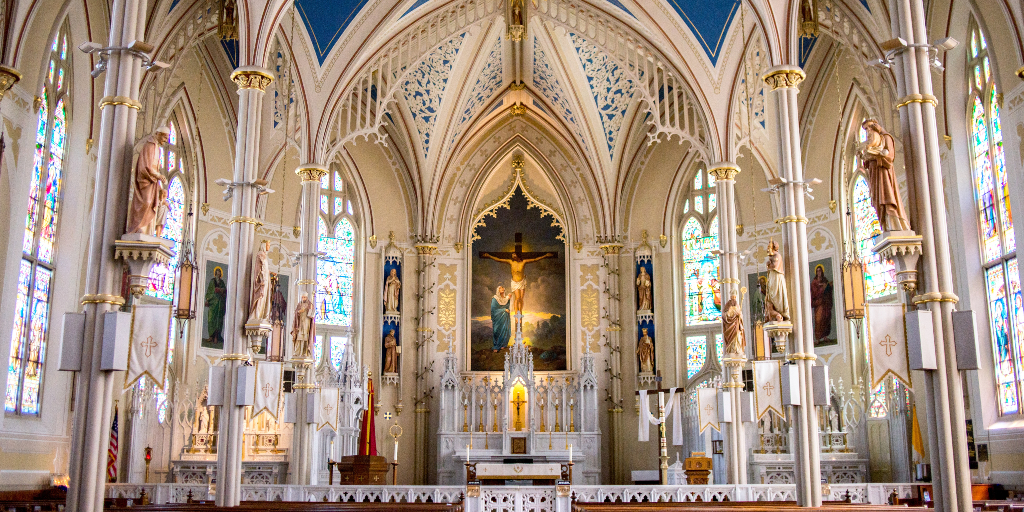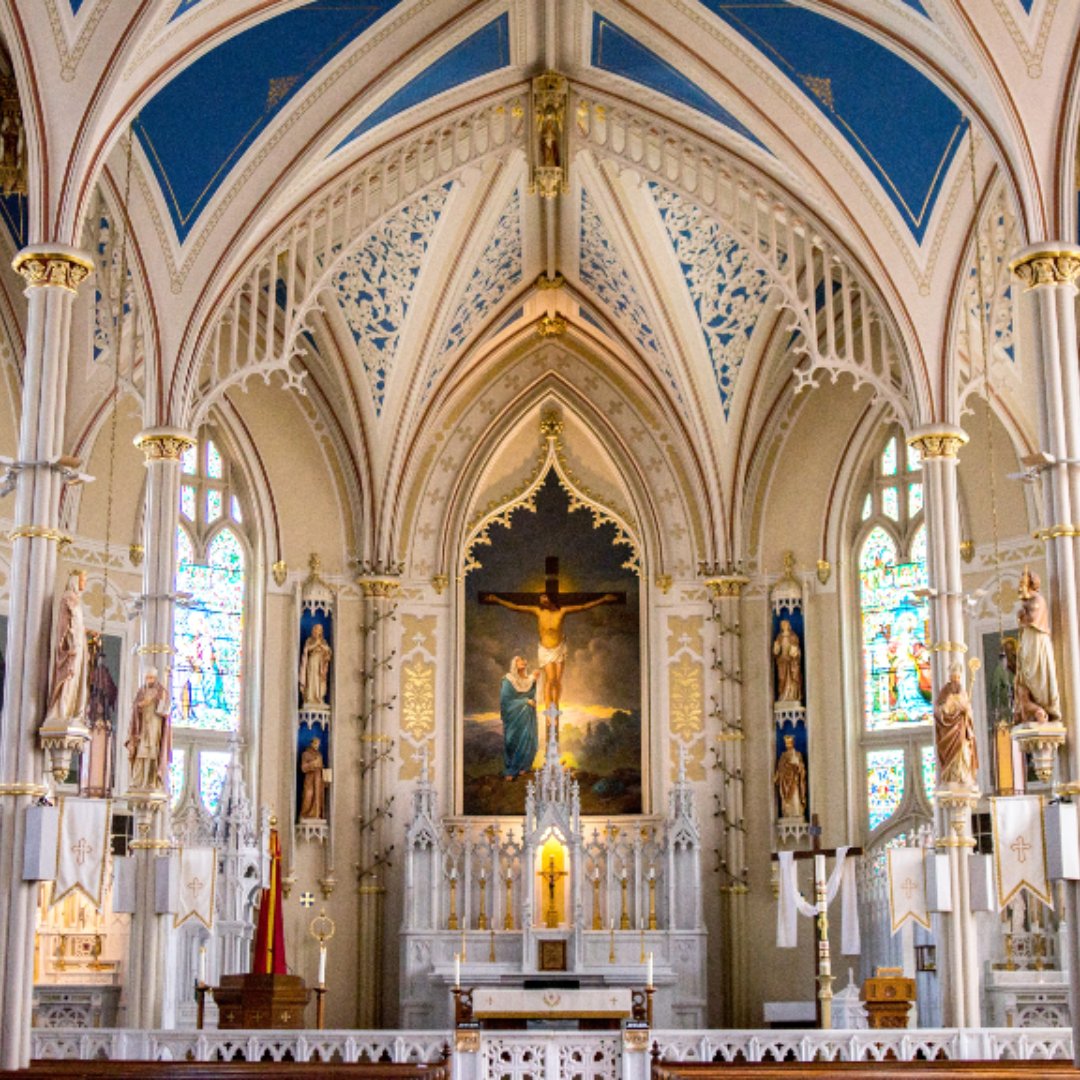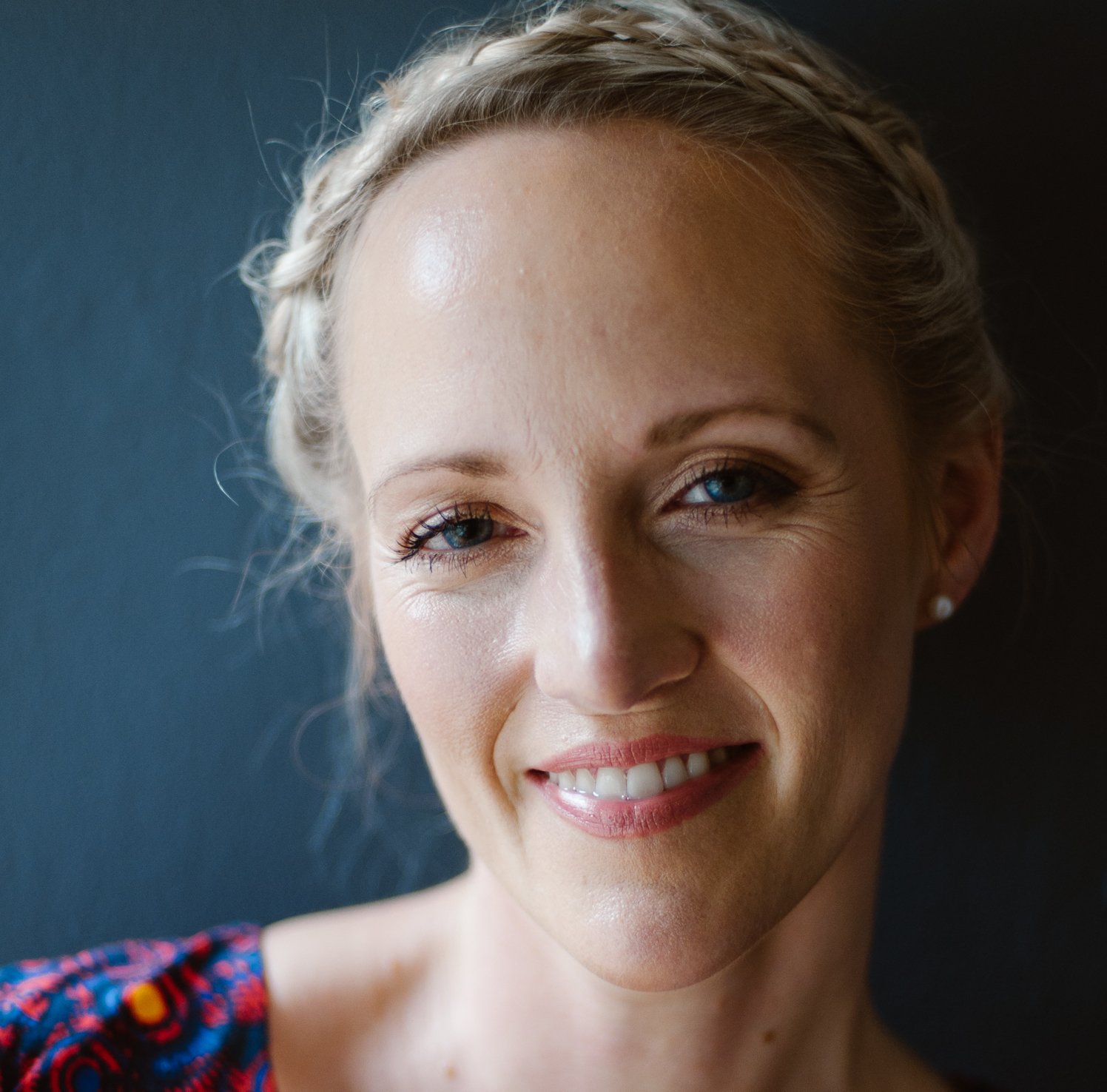
Johanna Stamps explores the longing she experienced before her conversion and how each misconception gave way to a calling to a life of holiness.
I often hear from others that people who convert to Catholicism have far more zeal than people born into Catholicism. What I experience is that converts know what they have been missing, whereas life-long Catholics sometimes don’t know what they have. When I began exploring Catholicism, I found something I didn’t know I had been looking for. And even better, I found a groundswell of support to help me achieve my calling.
For years before my conversion, I had been mildly obsessed with something called the Faith & Work movement — a worldwide initiative to integrate faith and work in the workplaces and marketplaces. At the time, this was my ultimate goal: Being able to show up authentically as a Christian in the workplace, ensuring that my life at church, at work, and in my home all mirrored the teachings of the gospel.
I longed for more, but didn’t know exactly what I was missing. I often heard beautiful examples of people sharing their faith through sacrificial love in the workplace, but it felt like there should be something more. I reached out to pastors and pastoral staff, but often found my interest in discussing these theological topics was not reciprocated. When I did speak with leadership, the answer was often to become involved in a ministry and spend time serving others. I loved the idea of serving but the more involved I became in volunteering, the further I felt away from God.
I was left to create my own map to ensure that I was living out my faith in the various aspects of my life. I created self-facilitated silent retreats for myself. I devoured Christian non-fiction books and spent hours on Saturdays surrounded by books, journals, Bibles, and commentaries. It felt as if I was feeding myself, as best I could, to keep myself going.
When I was almost depleted, I began dating someone who happened to be Catholic. I experienced, for the first time, a devout Catholic family. They made me feel welcomed and a part of their life of faith. When we travelled together, I was involved in their morning prayers and reciting of scripture. I was intrigued by how much of their life was influenced by their faith.
It was out of this relationship that I explored Catholicism empathetically. I didn’t show up with my normal laundry list of issues I had with the Catholic church: eating flesh, worshiping Mary, going to priests for confession instead of God.
I was exploring in the context of a raging crisis within the Church. I couldn’t mistake the irony of looking at Catholicism during this time. The stories I heard in the news made me feel ill. I wondered: How could I feel drawn to a Church that lets something like this happen to the most vulnerable? At worst, I was expecting to encounter a den of wolves, maybe people mourning the funeral of the church. Instead, I experienced something very different: a joyful family.
One of my first encounters was in a large, elegant room with a jovial priest and one other woman who would later become a dear friend. I was expecting a friendly welcome and a hand-off — similar to what I had experienced before. But that did not happened. We instantly began to engage in deep theological discussions. My heart was overjoyed, after desiring this type of conversation for so long. And then he said something I wasn’t expecting: “Johanna, you know you’re called to be a saint, right?” Inside I was thinking, “Whoa! I didn’t come here for a calling. I just wanted to learn how to share my faith with others in the workplace.” As I came to understand it, the call to holiness is a deep, daily walk with God, walking close enough to him to feel his love for me, walking close enough that I can’t help but arrive at sainthood.
Suddenly, it was less about which program I could lead and totally about my holiness, my relationship with God. The priest was ready, willing, and available to help in his father/shepherd role. As a pastor’s child, I had seen this availability before, being called to someone’s crisis at all hours of the day and night. I had never faulted my parents in their desire to love others with the love of Christ. As a family, we’ve come to understand that it’s challenging to be 100% present for your congregation and your family at the same time.
Before converting, I was invited to a four-day silent retreat and expected it would be similar to my self-facilitated retreat a year prior. Instead, it was a beautiful feast. There was a mass filled with liturgy, wisdom, and scripture. Morning readings from the doctors of the church during breakfast. Talks on the transformational power of Christ’s saving grace. Lectures on ways to live out our faith, continue in our formation and understand church teachings. Long hours of meditation in front of a beautiful monstrance displaying the body of Christ. Every aspect of the retreat was beautiful. From that long weekend, I began to thirst for that beauty.
In that abundant long weekend, I experienced the fullness of a call to holiness. Instead of rigor it felt like a quiet walk in a garden, being fed along the way. I was no longer walking alone. I was filled with the unmistakable love of Christ and the family of support to help me move forward.

Then, there was Confession. It was a surprise to me that I was able to experience this before I became a Catholic. Was I about to experience all the misgivings I had on my original list? What I actually experienced was a bounty of grace. I had always been quite aware of what was keeping me from God, but something was revealing in the examination of conscience; something freeing about sharing my sins (or what I thought were sins) and not melting from embarrassment, not receiving condemnation. There was peace and weightlessness when I physically heard the words God had been trying to share with me for so long: “Johanna, you are forgiven.” I felt free to walk into my calling of holiness in a way I hadn’t before.
As I went a little further in my exploration, I found myself quickly wading into the writings and teaching of Church leaders. Writings from the third century seemed like they could have been written today. Letters from modern popes echoed the same literary beauty as Paul’s letter to the Romans. Instead of a confused mix of thoughts and ideas, everything seemed to speak in unison, with one voice. Each piece was building on millennia of resources.
When I was inching closer to the day of my conversion, I realized these writers were not just names on a page or figures from the past. These were men and women alive in the resurrection of Christ, still interceding on my behalf. Still praying for me on my walk of holiness. Suddenly, the veil between my reality and the Kingdom of God was more transparent.
Then, on a warm early December day, I was ready to join in the feast of the Eucharist. I suppose it’s no surprise the weight this experience had for me; my father is a sacramental theologian. Sitting in Protestant churches, receiving the bread and grape juice once a month, never seemed enough. Having it served to me in my seat made me feel uncomfortable. Having eucharistic services with no liturgy left me with questions. When I experienced the fullness of the Mass, it was as if my whole being was rejoicing. All my questions and misgivings had been answered in the Body and Blood of Christ.
It wasn’t long before daily Mass became part of my routine. The idea of uniting myself to the whole Church each day made me excited when I woke up in the morning. Today, my days are ordered — with my little one in tow — around the feast of our risen Savior, food for my journey of holiness. The Eucharist is like the fountain in the center of my life from which everything else is fed.
My final hold-out had to do with Our Lady. For years after my conversion, she was smiling at me from a distance, waiting patiently. I had seen Mary as a distraction, someone in the way of my personal relationship with Christ. But when I became a mother of a little boy, this began to change. I saw how unique my relationship with my son was. I imagined, many, many, many years in the future, a young lady coming to sit with me and hear all the little details about my sweet boy. I imagined telling her those little intimate details about my son, things only I could know — things he loves dearly, ways to get him to laugh, his sensitivities. Soon after, I began to see Mary standing in front of me, but instead of standing between me and Jesus, she was holding her hand out to draw me in closer to Jesus, into the feast.
It is clear that my original desires for unity of life were not misguided. What has changed since my conversion is the shift from pushing myself to that goal to that of being drawn into a life of holiness. After walking for so many years alone, I felt relief and joy to be a part of a global family on a similar mission. It felt as if we were all walking together toward the same goal, encouraging each other along the way with beauty, truth, and goodness.
Copyright 2021 Johanna Stamps
Image: Brandon Morgan (2016), Unsplash
About the Author

Johanna Stamps
Johanna Stamps is a grief coach, writer, and artist focused on bringing hope and healing to women experiencing a major loss. Sign up to receive her weekly Reflections & Inspirations. After becoming a first-time mother at 39, Johanna has embraced a household with three generations. The best part of Johanna’s day is singing worship music loudly in the car with her preschooler while running errands.


.png?width=1806&height=731&name=CatholicMom_hcfm_logo1_pos_871c_2728c%20(002).png)
Comments